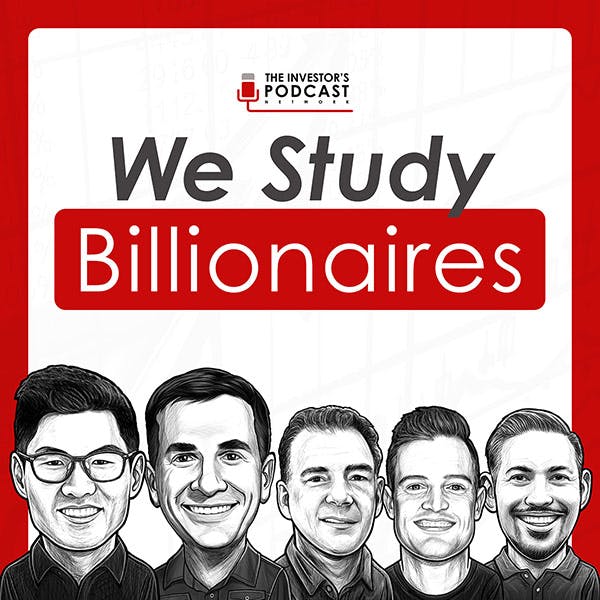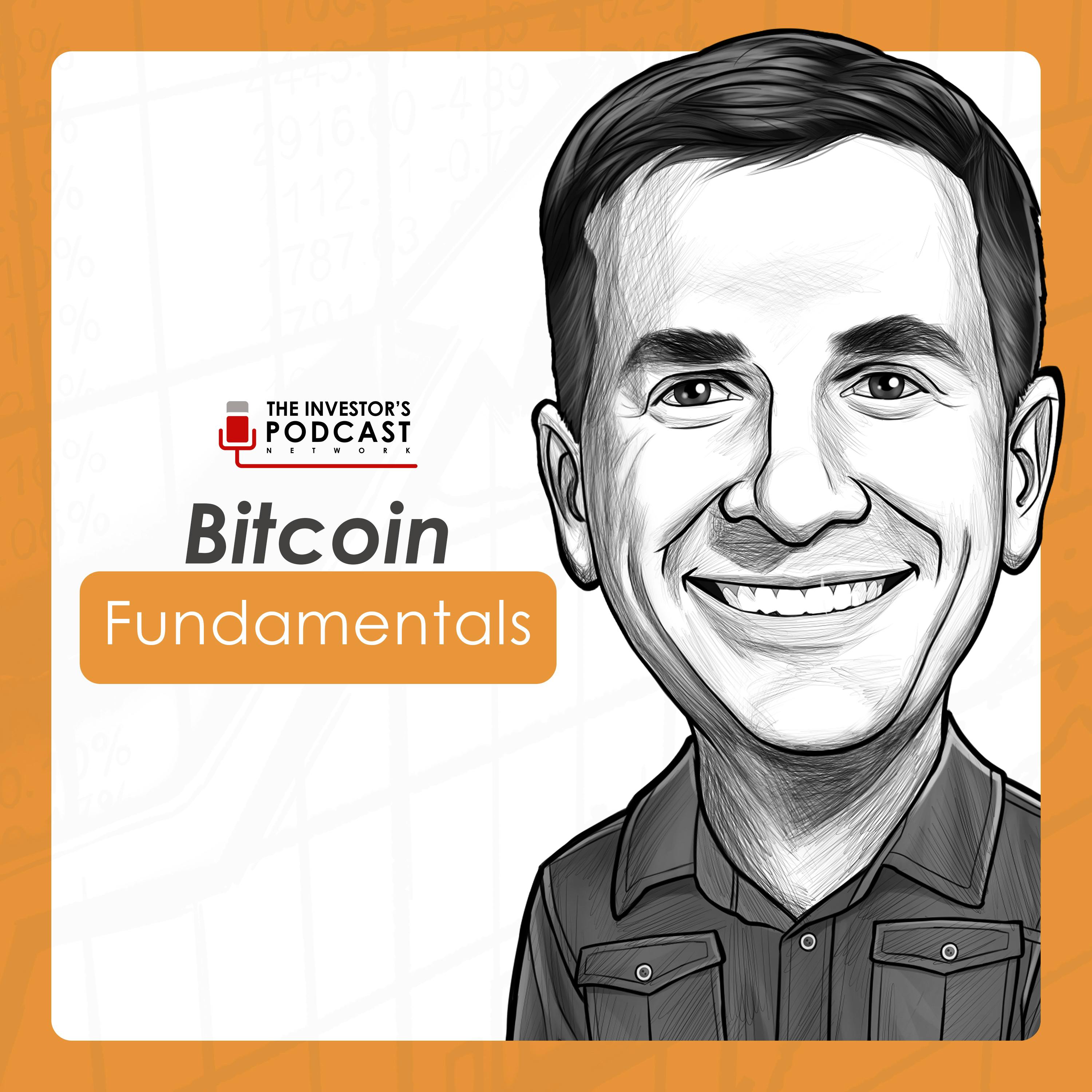
September 6, 2024 • 1hr 4min
TIP657: Morgan Housel's Lessons to Build Wealth w/ Clay Finck
We Study Billionaires - The Investor’s Podcast Network

Key Takeaways
- The best story wins - People are more influenced by compelling narratives than raw data or statistics. Successful investors and business leaders are often great storytellers.
- The biggest risk is what you don't see coming - Major events that reshape the world are usually surprises that almost no one predicted. Building in margin of safety is crucial.
- Optimism tends to be the best bet long-term - Despite constant doom and gloom headlines, being optimistic about human progress has historically been the right stance.
- Know what is "enough" for you - Constantly moving the goalposts of success can lead to taking on unnecessary risks. Define your goals and what is truly important.
- Focus on your time horizon more than returns - The power of compounding over long time periods is vastly underappreciated. Patience is a key investing virtue.
- Market cycles are driven by human nature - Economies go through cycles of greed and fear because humans have a tendency to take things too far in both directions.
Introduction
In this episode, host Clay Finck shares the most important lessons he's learned from Morgan Housel, author of the bestselling books "The Psychology of Money" and "Same as Ever". Housel's work focuses on timeless principles of investing and human behavior in financial markets.
The episode explores six key concepts from Housel's writings and interviews: the power of storytelling in finance, preparing for unforeseen risks, the case for long-term optimism, defining "enough", the importance of time horizons in investing, and understanding market cycles. Finck breaks down each concept and provides examples and insights.
Topics Discussed
The Best Story Wins (1:27)
Housel argues that in finance and business, the most compelling narrative often triumphs over the best data or most rational argument. People are emotional creatures who respond more to stories than statistics.
- Successful business leaders like Steve Jobs, Elon Musk, and Warren Buffett are often great storytellers
- Investors need to craft a story about a company's future potential
- During bubbles, people cling to stories about paradigm shifts (e.g. dot-com bubble)
- Stories can give a false sense of certainty and control in an uncertain world
Risk is What You Don't See Coming (9:28)
The biggest risks are usually surprises that almost no one predicted. Building in margin of safety is crucial to survive unforeseen events.
- Major events like COVID-19, 9/11, and the Great Depression were not widely anticipated
- Forecasting is extremely difficult - even experts routinely fail to predict major events
- Prepare for uncertainty rather than trying to predict specific outcomes
- Build cushions into your finances and investments to withstand shocks
- Bill Gates ran Microsoft conservatively despite his optimistic vision
The Seduction of Pessimism (23:30)
Despite constant doom and gloom headlines, being optimistic about human progress has historically been the right stance.
- Progress happens gradually while setbacks can happen suddenly, making pessimism seem smarter
- Humans are wired to pay more attention to negative news
- Betting against continued innovation is betting against human nature
- Standard of living has doubled every 25 years over the past century
- Pessimists often fail to account for how humans adapt to solve problems
Knowing What is Enough (27:31)
Constantly moving the goalposts of success can lead to taking unnecessary risks. It's important to define your goals and what is truly important.
- Story of Rajat Gupta risking his reputation and freedom for more wealth
- Social comparison makes it hard to feel satisfied
- Some things are invaluable and not worth risking for more gains (reputation, relationships, etc.)
- Be reasonable rather than purely rational with personal finances
- Morgan Housel invests simply in index funds to meet his goals without overreaching
Focus on Time Horizon Over Returns (33:32)
The power of compounding over long time periods is vastly underappreciated. Patience is a key investing virtue.
- Warren Buffett's secret was his extremely long time horizon
- Example of $100k growing to $2.9M over 50 years at 7% returns
- Delaying gratification in investing leads to exponential rewards
- Look for businesses and managers that think long-term
- Beware of disguising stubbornness as "long-term thinking"
Market Cycles and Human Nature (48:06)
Economies go through cycles of greed and fear because humans have a tendency to take things too far in both directions.
- Stability itself can be destabilizing as people take on more risk
- Optimism and pessimism overshoot to discover limits
- Short-term prices based on emotions and stories, not just fundamentals
- Declarations that "markets don't work anymore" happen in every cycle
Bonus: The Impact of Debt (50:06)
Morgan Housel and Howard Marks discussed the dangers of excessive leverage in investing:
- Debt narrows the range of outcomes you can endure
- Combination of leverage and volatility is especially dangerous
- Story of Rick Guerin using margin and having to sell to Buffett at the bottom
- Lack of recessions can cause complacency about leverage
- Need to balance risk management vs. risk avoidance
Conclusion
The episode synthesizes key lessons from Morgan Housel's work on investing psychology and timeless financial principles. Key themes include the power of storytelling, preparing for uncertainty, long-term optimism, defining "enough", patience, and understanding market cycles driven by human nature.
These insights can help investors develop a more grounded, psychologically-aware approach to managing their finances and investments for the long-term. By understanding common pitfalls of human nature, we can make better financial decisions and build lasting wealth.
The host encourages listeners to check out the full interviews with Morgan Housel in episodes 602 and 351 for more insights. He also mentions the TIP Mastermind community for those interested in networking with like-minded value investors.









